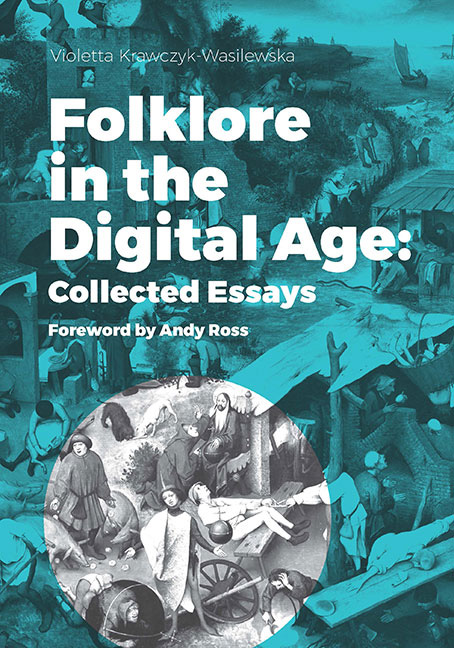Book contents
- Frontmatter
- Contents
- Acknowledgements
- Foreword
- I The Art of Bruegel and the Folklorist
- II e-Folklore as a Part of Digital Culture
- III Towards a Digital Folklore Heritage
- IV Post September 11: Global Fear vs Digital Humour
- V The Haiti Legends Revisited and the Power of e-Rumour
- VI The Global Dating Phenomenon
- VII Matchmaking through Avatars: Social Aspects of Online Dating
- VIII The Global Food Story and the Internet
- Bibliography
- Miscellaneous Endmatter
VI - The Global Dating Phenomenon
Published online by Cambridge University Press: 22 December 2017
- Frontmatter
- Contents
- Acknowledgements
- Foreword
- I The Art of Bruegel and the Folklorist
- II e-Folklore as a Part of Digital Culture
- III Towards a Digital Folklore Heritage
- IV Post September 11: Global Fear vs Digital Humour
- V The Haiti Legends Revisited and the Power of e-Rumour
- VI The Global Dating Phenomenon
- VII Matchmaking through Avatars: Social Aspects of Online Dating
- VIII The Global Food Story and the Internet
- Bibliography
- Miscellaneous Endmatter
Summary
Introduction
The development of digital technology has facilitated the growth of interpersonal contacts through the spread of low cost telephone calls, mobile telephony, online chatting and emailing. Various forms of electronic contact have replaced traditional face-to-face communication within a so called ‘social network’, while a further intriguing aspect of this phenomenon is ‘online dating’ or ‘Internet dating’. This is a personal introductory system whereby individuals can find and contact each other over the Internet to arrange a date. Globalisation makes it possible to organise certain behaviours that follow the rules of match-making or dating, giving people the chance to find their soul mate and become a part of the eternal story of pairing a man and a woman. Online dating is now a part of everyday life for millions of people. It is the largest single way in which relationships start today. Young, but also middle-aged and elderly are subscribers to friend finding and dating websites looking for an e-pal, a friend, a companion, a lover, a partner, a consort or a spouse. This trend is caused by the increase of human loneliness in many developed countries.
It is more than possible that the growing number of singletons (estimated to reach up to 40% of world adult population by 2021) will change habits, housing, use of energy, cost of living, services, etc. This truly revolutionary process may destroy the fabric of life based on home, family and permanent place of living. Young singletons of both sexes no longer feel socially odd; they use their status to explore the world, to build their careers before settling down, to try out new experiences and to enjoy working life to achieve a greater self-esteem. Singletons happy with their single status, known in the USA as “quirkylones” (from quirky alone) create a growing population all over the world. This trend is slowly becoming evident; suffice it to mention holidays for singles, solo-lifestyle promotion (i.e. National Unmarried and Single Americans Week), single meals in supermarkets, smaller apartments and properties, but also the rising amount of sheltered accommodation for the elderly and nursing homes, and finally the growth of online dating websites.
- Type
- Chapter
- Information
- Folklore in the Digital Age: Collected Essays , pp. 81 - 100Publisher: Jagiellonian University PressPrint publication year: 2016



